
PayPal’s Stablecoin Debut Faces Headwinds, Bank of America Says
PayPal Holdings Inc.’s rolling out of a stablecoin will drive payments efficiencies and improve customer experience even though
2023-08-12 00:53
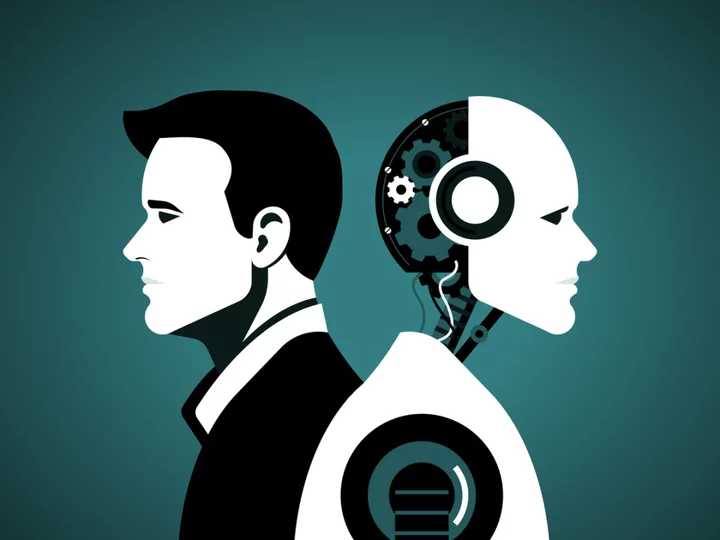
How much of a threat does AI really pose? Get your ticket for our free exclusive event
It seems that every day we are hearing about more businesses across the globe adopting the use of AI. While Tim Cook has recently revealed Apple is building AI into ‘every product’, Netflix has listed a controversial AI job paying $900,000 amid strike action from actors against the technology. It’s not just big businesses investing in artificial intelligence, however. Multiple studies are beginning to emerge tauting AI’s benefits. One claimed AI can read breast cancer screening images and another argued it could help revolutionise the way children are taught. So where does this leave us? How worried are we supposed to be about AI? Is it an exciting development in technology or is it a genuine threat to humanity as we know it? Want to keep updated with the latest news in tech? Sign up to our weekly email here As the world continues to increase the exploration, use and development of artificial intelligence The Independent’s tech team is going to examine exactly what it means for our workplaces, our ways of communication and our day to days lives. In The Independent’s virtual event series our tech editor Andrew Griffin will be examining exactly what threat AI poses as it continues to evolve. He will be joined by his deputy Anthony Cuthbertson, as well as a panel of other experts, to comment on the latest from the world of artificial intelligence and to answer your burning questions. The panel will discuss the advantages and disadvantages of AI, the moral and legal issues surrounding it, the latest developments on the horizon and what the future of AI hold for the planet. The event will take place on August 17 on Zoom and will start at 6.30pm. For more information and to sign up for a free ticket click here. You can also post questions in the comments of this article. Read More AI-driven cyberattack can now steal passwords with near 100 per cent accuracy Google Assistant will be ‘supercharged’ with AI like ChatGPT and Bard Tired of proving you’re not a robot? Say goodbye to Captcha boxes
2023-08-12 00:20
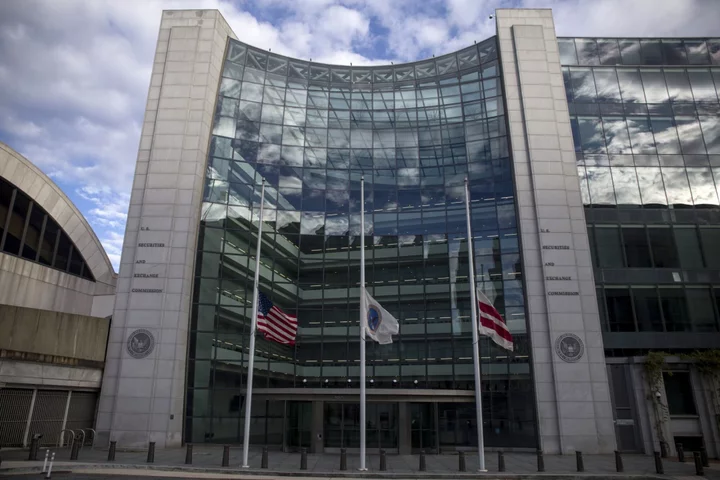
SEC Delays Decision on ARK 21Shares Bitcoin ETF Filing
The US Securities and Exchange Commission has not yet come to a decision on whether to approve the
2023-08-11 23:29
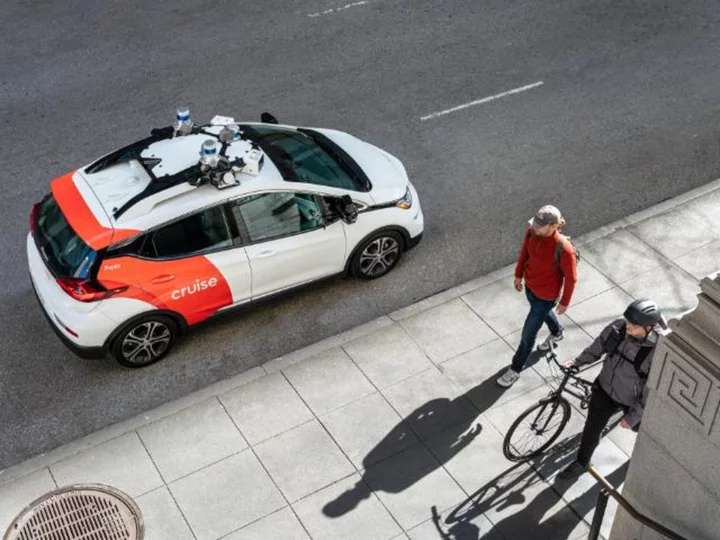
Regulators give green light to driverless taxis in San Francisco
California regulators gave approval Thursday to two rival robotaxi companies, Cruise and Waymo, to operate their driverless cars 24/7 across all of San Francisco and charge passengers for their services.
2023-08-11 18:54
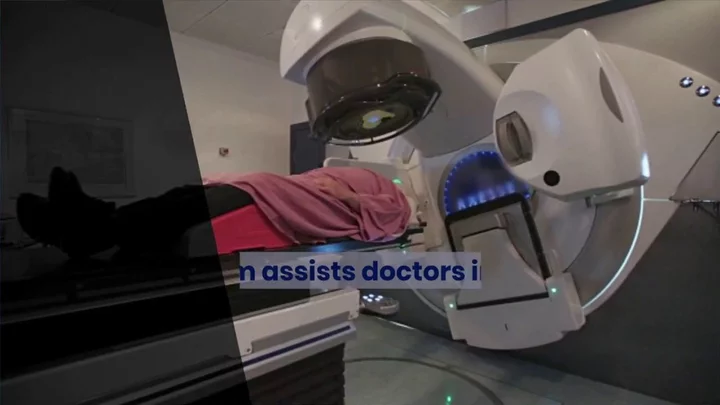
AI could soon be used to treat cancer in the NHS
Artificial intelligence could soon be used to perform radiotherapy to treat certain cancers for the first time. Draft guidance from the National Institute for Health and Care Excellence (Nice) has given approval to nine AI technologies for performing external beam radiotherapy in lung, prostate and colorectal cancers, which could save radiographers hundreds of thousands of hours and help relieve pressure on radiotherapy departments. Currently therapeutic radiographers outline healthy organs on digital images of a CT or MRI scan by hand so that the radiotherapy does not damage healthy cells by minimising the dose to normal tissue. Nice found that using AI to create the contours could free up between three and 80 minutes of radiographers’ time for each treatment plan, and that AI-generated contours were of a similar quality to manually drawn ones. Nice said that the contours would still be reviewed by a trained healthcare professional. It comes after a study found AI was safe to use in breast cancer screenings with evidence growing that it can be more effective in detecting cancers. Sign up to our free Indy100 weekly newsletter Meanwhile, Nice said it was also examining the evidence for using AI in stroke and chest scans. Dr Sarah Byron, the programme director for health technologies at Nice, said using AI could help reduce waiting lists. She added: “NHS colleagues working on the frontline in radiotherapy departments are under severe pressure with thousands of people waiting for scans. “The role imaging plays in radiotherapy treatment planning is quite pivotal, so recommending the use of AI technologies to help support treatment planning alongside clinical oversight by a trained healthcare professional could save both time and money. “We will continue to focus on what matters most and the recommendations made by our independent committee can help to bring waiting lists down for those needing radiotherapy treatment.” The health secretary, Steve Barclay, welcomed the announcement. He said: “It’s hugely encouraging to see the first positive recommendation for AI technologies from a Nice committee, as I’ve been clear the NHS must embrace innovation to keep fit for the future. “These tools have the potential to improve efficiency and save clinicians thousands of hours of time that can be spent on patient care. Smart use of tech is a key part of our NHS long-term workforce plan, and we’re establishing an expert group to work through what skills and training NHS staff may need to make best use of AI.” Charlotte Beardmore, the executive director of professional policy at the Society of Radiographers, welcomed the draft guidance but said it was not a replacement for staff and caution was needed. “It is critical there is evidence to underpin the safe application of AI in this clinical setting,” she said. Using AI would still require input by a therapeutic radiographer or another member of the oncology multi-professional team, she added. “Investment in the growth of the radiography workforce remains critical.” Science is pretty amazing. Have your say in our news democracy. Click the upvote icon at the top of the page to help raise this article through the indy100 rankings.
2023-08-11 18:21
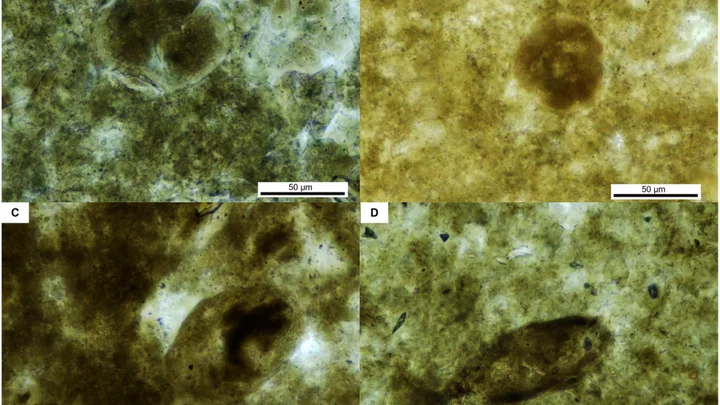
Scientists are cutting open parasitic eggs from 200 million years ago
A 200 million-year-old parasite has been discovered in fossilised poo, in the latest not-at-all-scary instance of scientists unearthing a species which blighted the Earth in ancient times. Researchers found that the earliest predators on the planet were infested with roundworm, also known as nematodes, among multiple other parasites. The fossilised poo, which is known to palaeontologists as coprolite, is thought to belong to a type of semi-aquatic phytosaur, which was a crocodile-like predator. Sign up to our free Indy100 weekly newsletter It comes weeks after another team revived a prehistoric worm – the catchily named Panagrolaimus kolymaensis – which was found dormant in the Siberian permafrost in a state of “cryptobiosis”. The latest study saw researchers from Mahasarakham University, Thailand, analyse a three-inch-long portion of ancient poo and discover five types of parasitic remnants. The group sliced open the parasitic egg fossils with a diamond saw using a “standard thin section method,” their report said. The ultra-thin slices allowed the palaeontologists to look at cross-sections of the ancient infectious microbes under a microscope. One was identified as a nematode worm egg, while the others are thought to be either more eggs, protozoan cysts or spores from moss and ferns. While modern parasites are often an important part of ecosystems, it is usually more difficult to work out what their ancient equivalents did, because there are so few examples in the fossil record. The creatures often inhabited the soft tissues of their hosts, but are rarely preserved as fossils, making the latest discovery all-the-more significant. This fossilised late Triassic-era coprolite (the poo), was shielded from the elements in the Huai Hin Lat geological formation in Thailand, which is over 200 million years old. It was found by local villagers, according to the study's lead author, paleontologist Thanit Nonsrirach. “The peculiar appearance of these findings intrigued the villagers, who considered them potentially auspicious and capable of bestowing good luck if repurposed as talismans,” Nonsrirach told news outlet Inverse. “In 2010, our team received word of this discovery and embarked on a field expedition, guiding the villagers to the actual fossil site.” The discovery is the first record of parasites in a terrestrial vertebrate host from the late Triassic period in Asia, and provides a rare look at the life of an ancient creature that was infected by multiple species. This discovery also adds to the few known examples of nematode eggs preserved within the coprolites of Mesozoic animals. “Parasites of several species, including Ascaridida (roundworm) eggs were found in a coprolite, probably produced by a crocodile-like reptile and possibly a phytosaur,” said Nonsrirach, who works at Mahasarakham University's Palaeontological Research and Education Center. “This is therefore the first discovery of Ascaridida eggs and evidence of multi-infection in a host assignable to the Crurotarsi from the Late Triassic of Asia. “Coprolite is a significant palaeontological treasure trove, containing several undiscovered fossils and expanding our understanding of ancient ecosystems and food chains. “These findings are therefore a significant contribution to scientific understanding of the distribution and ecology of parasites of the distant past.” Have your say in our news democracy. Click the upvote icon at the top of the page to help raise this article through the indy100 rankings.
2023-08-11 18:21

Warning over ‘dangerous’ carbon monoxide alarms for sale on eBay and Amazon
“Dangerous” carbon monoxide alarms are being sold on eBay, Amazon, AliExpress and Wish, Which? has warned. The consumer champion said the government was failing to take the urgent action needed to hold the marketplaces to account after tests of alarms bought on the sites found they failed to alert households to the presence of the lethal odourless gas. The group is calling for online marketplaces to have more legal responsibility for preventing unsafe products on their platforms. In total, across the five faulty alarms, Which? found 46 listings on AliExpress, 42 on eBay, 41 on Wish and 20 on Amazon. One of the unsafe models was first flagged to eBay by Which? seven years ago but this year’s tests found the model still cannot be relied on to sound when needed. It failed to respond to carbon monoxide 10 times out of 28 CO detection tests and it was far too quiet when it did sound. The same dangerous alarm was listed on AliExpress, Amazon, and Wish. A total, 149 listings for unsafe CO alarms were identified by Which? across the four online marketplaces and have since been removed. EBay is the only online marketplace that discloses sales figures which showed that at least 1,311 of the alarms identified by Which? found had been purchased. The models, all unbranded and made in China, featured prominently on the online marketplaces when listings were filtered by cheapest first, in some cases being sold for as little as £5. Another unbranded CO and smoke alarm, which failed to trigger 22 times when CO was in the air, was listed by 22 eBay sellers, with 718 sales recorded, and by two sellers on AliExpress. A separate unbranded alarm, which failed to sound in 15 carbon monoxide detection tests, was available for sale from six sellers on Amazon and eBay. Last week, the government provided an update on its long-delayed product safety review but it failed to provide reassurances of a crackdown on marketplaces any time soon. The review was launched in March 2021 but Which? said it has still not resulted in any real action to tackle the problem, which could be delayed until after the next general election. Avril Samuel, whose daughter Katie died of CO poisoning at her home, raised concerns about unsafe carbon monoxide alarms being sold online. “A carbon monoxide alarm forms the second line of defence against carbon monoxide poisoning - the first being that all carbon-burning appliances should be regularly maintained and serviced by a registered engineer,” she said. “If the alarm is not to standard, that defence is negated and could have fatal results.” Figures indicate that carbon monoxide poisoning has caused more than 200 accidental deaths in England and Wales in the past decade. Sue Davies, head of consumer protection policy at Which?, said: “This is the latest in a long line of examples of unsafe products being readily available on online marketplaces, with far too little action taken by the platforms to prevent them being allowed for sale. “The government cannot delay any longer. It must move at pace to establish new regulations that put consumer safety first and enable tough enforcement action against online marketplaces that break the rules.” Read More Bode Miller says his toddler son Asher was hospitalised for carbon monoxide poisoning 3 US Marines died of carbon monoxide poisoning in a car. Vehicle experts explain how that can happen ULEZ: What is it and why was it created? ‘Demon’ particle inside superconductor may help demystify ‘holy grail’ of physics Astronomer uncovers ‘direct evidence’ of gravity breaking down in the universe Slack announces its biggest ever update
2023-08-11 18:21
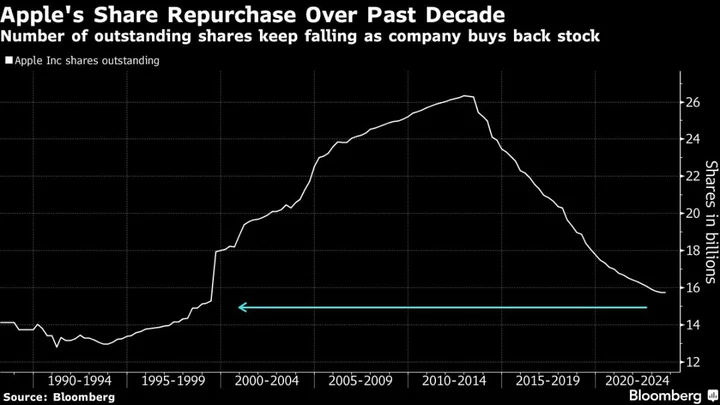
Alphabet’s $118 Billion Cash Pile Poses a New Problem
Alphabet Inc. is facing a new and, by most accounts, welcome problem — how to spend its rapidly
2023-08-11 17:53
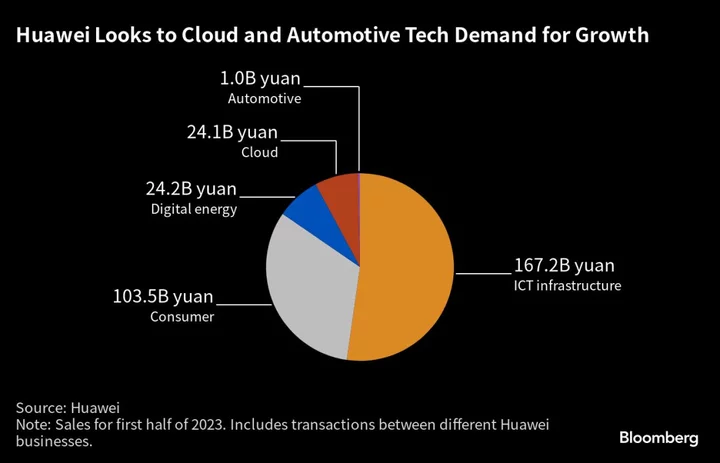
Huawei’s Sales Grow Again as New Arenas Mitigate Sanctions Hit
Huawei Technologies Co. grew sales for a third straight quarter, after new businesses like cloud services and a
2023-08-11 16:25
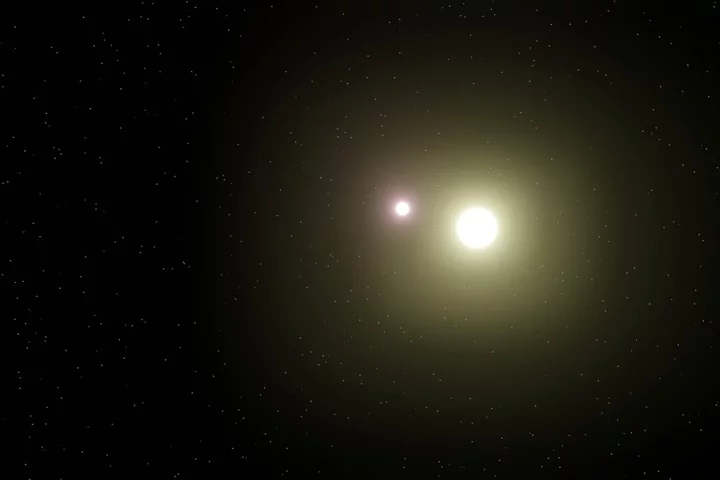
Astronomer uncovers ‘direct evidence’ of gravity breaking down in the universe
A scientist claims to have discovered a “gravitational anomaly” that calls into question our fundamental understanding of the universe. Astronomer Kyu-Hyun Chae from the university of Sejong University in South Korea made the discovery while studying binary star systems, which refer to two stars that orbit each other. His observations appear to go against the standard gravitational models established by Isaac Newton and Albert Einstein, and instead offer evidence that an alternative theory first proposed in the 1980s may explain the anomaly. Analysis of data collected by the European Space Agency’s Gaia space telescope revealed accelerations of stars in binaries that did not fit the standard gravitational models. At accelerations of lower than 0.1 nanometres per second squared, the orbit of the two stars deviated from Newton’s universal law of gravitation and Einstein’s general relativity. Instead, Professor Chae theorised that a model known as Modified Newtonian Dynamics (MOND) could explain why these previous theoretical frameworks were unable to explain the stars’ movements. “The deviation represents a direct evidence for the breakdown of standard gravity at weak acceleration,” Professor Chae wrote in a paper, titled ‘Breakdown of the Newton-Einstein standard gravity at low acceleration in internal dynamics of wide binary stars’, that was published in The Astrophysics Journal.. His research calls into question the existence of dark matter and other peculiar space phenomena that are typically used to justify irregularities with Newton-Einstein standards. “The data reveal an unambiguous and extremely strong signature of the breakdown of the standard Newton-Einstein gravity at weak acceleration,” the study concluded. “What is even more surprising is that the trend and magnitude of the gravitational anomaly agree with what the AQUAL [MOND] theory predicts.” Professor Chae predicts that his results will be confirmed and refined with larger data sets in the future, which could lead to a new revolution in physics. “Chae’s finding is a result of a very involved analysis of cutting-edge data, which, as far as I can judge, he has performed very meticulously and carefully,” said theoretical physicist Mordehai Milgrom at the Weizmann Institute in Israel, who first proposed the MOND model 40 years ago. “But for such a far-reaching finding – and it is indeed very far-reaching – we require confirmation by independent analyses, preferably with better future data. “If this anomaly is confirmed as a breakdown of Newtonian dynamics, and especially if it indeed agrees with the most straightforward predictions of MOND, it will have enormous implications for astrophysics, cosmology, and for fundamental physics at large.” Pavel Kroupa, professor at Charles University in Prague, added: “The implications for all of astrophysics are immense.” Read More Perseids 2023: Meteor beacon offers unique way to observe spectacular shower over UK Slack announces its biggest ever update Why you might never have to remember your password again AI can predict Parkinson’s subtype with up to 95% accuracy, study suggests
2023-08-11 15:52
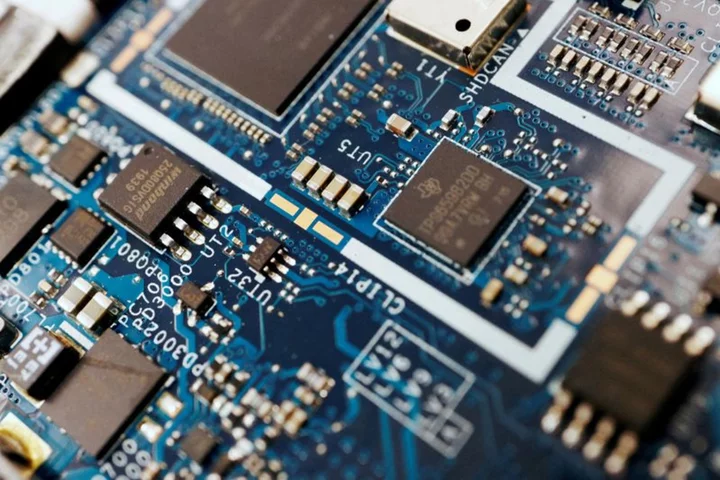
Japan eyes tax break for domestic EV battery, chip production - Nikkei
TOKYO Japan plans to create tax breaks for domestically-made electric vehicle (EV) batteries and semiconductors from April 2024
2023-08-11 11:17

Microsoft’s Role in Email Breach to Be Part of US Cyber Inquiry
A US cybersecurity advisory panel will investigate risks in cloud computing, including Microsoft Corp.’s role in a recent
2023-08-11 09:20
